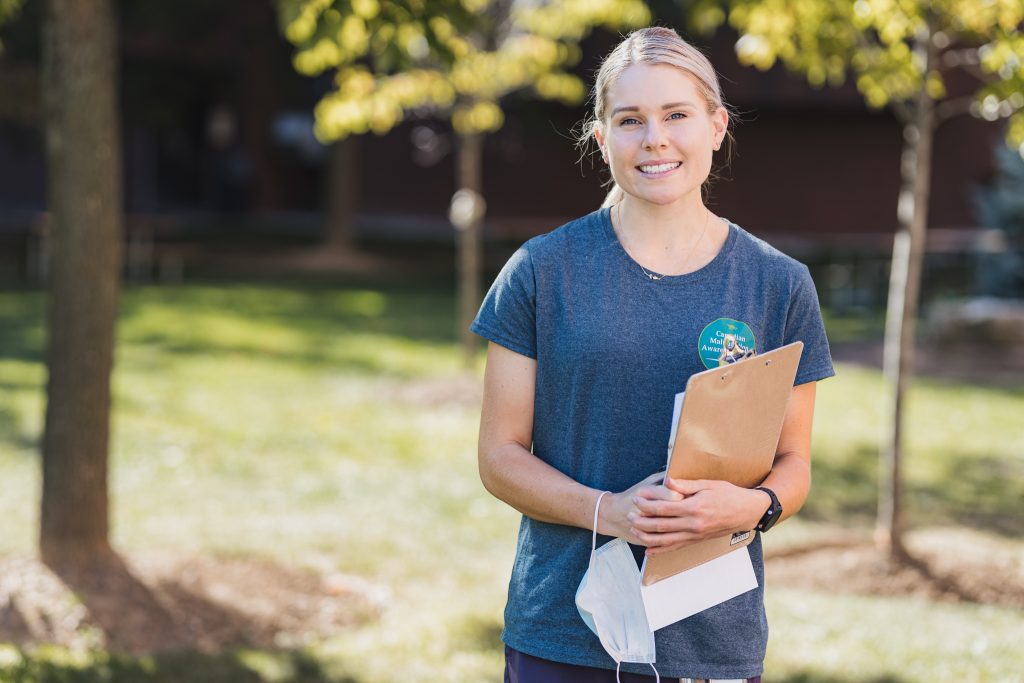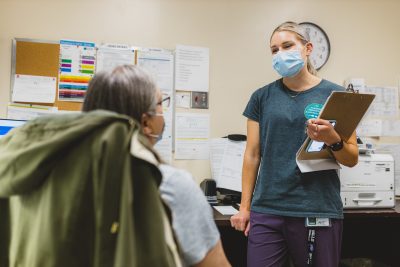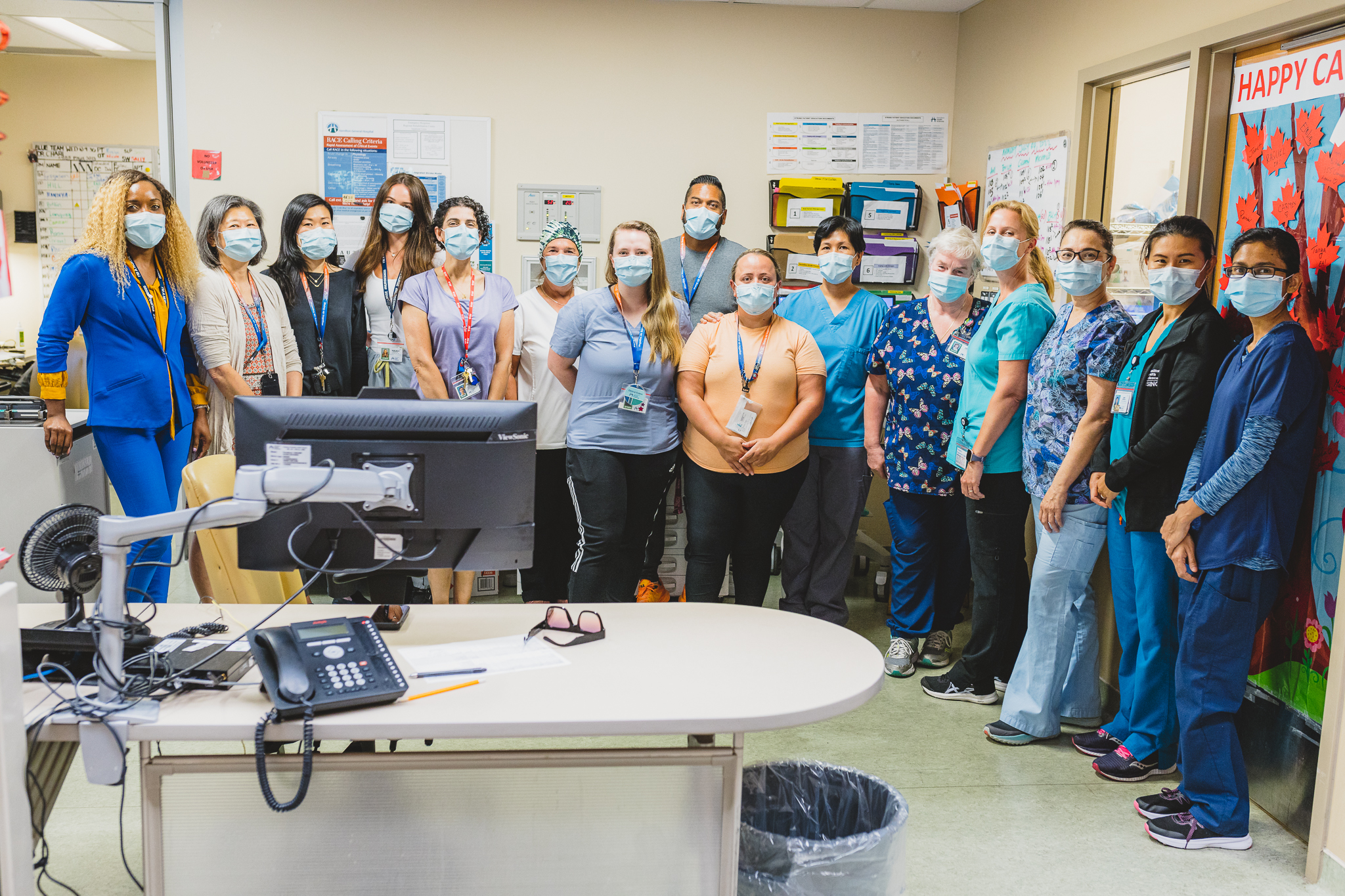
Introducing a dietetic assistant
Kaylee MacLellan always knew she wanted a career that would help people and was interested in working in a hospital. She initially went into her post-secondary education thinking she’d get into nursing. But then she discovered she had an interest in nutrition.
To see if she could combine her interests, she decided to look at some job postings on the Hamilton Health Sciences (HHS) website. That’s when she came across the dietetic assistant role. Although she was still in school at the time, she thought it would be the perfect fit for her.
“Every day I encounter patients who struggle with their nutritional intake.”
After completing her bachelor in science with a major in human nutrition, MacLellan began her career outside of the hospital, though still in the health care sector. She later decided to seek out the dietetic assistant role.
She’s now been a dietetic assistant for two years and at HHS since February 2022.
Food is like medicine
If patients are in pain, or having side effects from medication, it can impact their appetite. If they go too long without eating properly it can eventually lead to malnutrition. And, if patients aren’t getting the nutrients their body needs, it will impact their ability to heal.

Many patients have some degree of nutritional risk when in hospital so as a dietetic assistant, Kaylee MacLellan is often part of a patient’s care team.
For this reason, dietitians and dietetic assistants are often needed as part of a patient’s care team. As a dietetic assistant, MacLellan helps to monitor patients at risk for malnutrition and works directly with patients who have mild nutritional risk.
“Every day I encounter patients who struggle with their nutritional intake, so providing early nutrition intervention is an important part of their recovery,” says MacLellan. “I like to remind my patients that food is like medicine and is paramount to everyone’s health and wellbeing at every stage of life.”
Eating to heal
MacLellan works with patients on three stroke units, two at the Hamilton General Hospital and one at the adjacent Regional Rehabilitation Centre. As well as working with patients who are at nutritional risk, she also monitors patient diet orders. Every patient admitted to hospital has a diet order that is entered into our food services system.
“We want to ensure patients are given food they can and will eat so that their bodies can effectively work to heal.”
While not every patient needs a nutritional assessment, nutrition screening occurs on two of her units to help reduce the risk of malnutrition. While the third unit makes note of food allergies, intolerances and preferences when patients are admitted. MacLellan reviews all information collected to ensure food and nutrition details are properly identified on each patient’s food order in her three units.
“We want to ensure patients are given food they can and will eat so that their bodies can effectively work to heal,” she says. “This keeps patient safety as a top priority as it helps prevent them developing a nutritional risk.”
Part of the care team
Dietitians and dietetic assistants are considered part of the patient’s care team so MacLellan participates in rounds, where the full team comes together to discuss each patient’s care plan.
“It’s so rewarding to have my work factored into a patient’s overall care plan,” she says. “Even for the patients who don’t have a nutritional risk, it means I’ve done my job to help them with their recovery.”
The Canadian Nutrition Society has identified the week of October 3, 2022 as Canadian Malnutrition Awareness Week.



